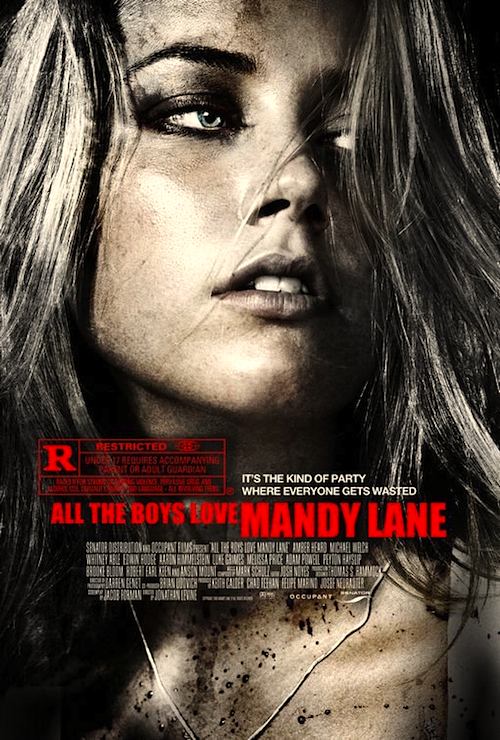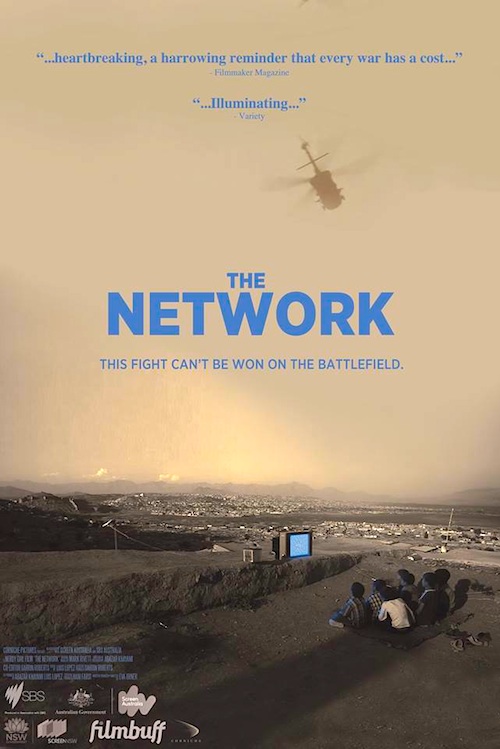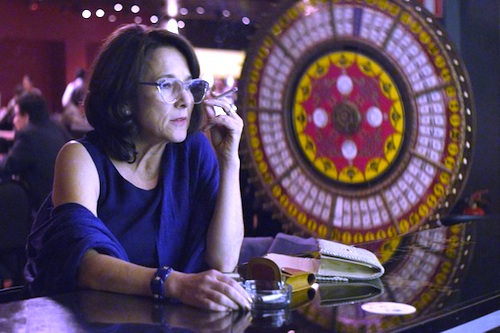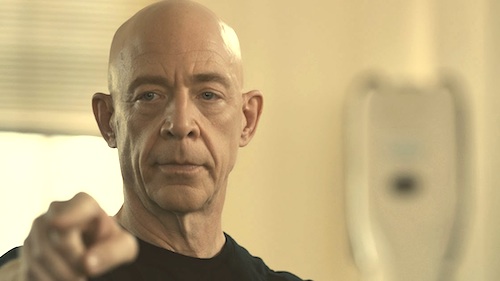 By Joe Bendel. Virtuous high school student Mandy Lane is the polar opposite of Stephen King’s Carrie White. The guys want to sleep with her and the girls want the status of being her frienemy. She is not really into the scene, but she agrees to a weekend getaway to be sociable. Naturally, everyone soon becomes the prey of a serial killer in Jonathan Levine’s All the Boys Love Mandy Lane, which finally opens today in New York.
By Joe Bendel. Virtuous high school student Mandy Lane is the polar opposite of Stephen King’s Carrie White. The guys want to sleep with her and the girls want the status of being her frienemy. She is not really into the scene, but she agrees to a weekend getaway to be sociable. Naturally, everyone soon becomes the prey of a serial killer in Jonathan Levine’s All the Boys Love Mandy Lane, which finally opens today in New York.
The last time Lane tried this partying thing, it ended in tears. At a fateful poolside shindig, Lane’s reluctantly platonic artsy friend Emmet convinces a big dumb jock to attempt a high dive from his roof to impress the unobtainable bombshell. He misses. It seems like Emmet left himself plenty of plausible deniability, but he winds up shunned by everyone, including you-know-who. Obviously, this episode looms large for Lane when she accepts Red’s invitation for what he hopes will be a few days of debauchery at his family ranch.
It is awkward right from the start. Lane rebuffs everyone’s advances, but seems kind of sort of interested in the legally adult ranch hand, Garth. Only the school floozy agrees to sleep with any of Lane’s frustrated admirers, but she soon pays for her bad judgment. Before long, the kids are dropping one by one, like a hornier, binge-drinking version of Agatha Christie’s And Then There Were None.
ATBLML appears to be a case of absence making the heart grow fonder. The film first hit the festival circuit in 2006. Subsequently it was picked up by the Weinsteins, who later sold it to another distributor that went under shortly thereafter. When the rights dust finally settled, the Weinsteins re-acquired the film—and now here it is, rather underwhelming given its elusive rep.
Frankly, this is merely a serviceable dead teenager movie, executed with a measure of style, but not a lot of inspiration. It gets the high school vibe right, but the genre stuff is all strictly by the numbers. In fact, the big switcheroo is so conspicuously obvious, it feels rather anti-climatic when the shoe finally drops.

Some viewers might also be intrigued to catch up with early screen turns from Amber Heard and Anson Mount from Hell on Wheels. While they are perfectly adequate as Lane and the Garth the protective cowpoke, their work in the film never screams “star in the making.” Perhaps Whitney Able fares the best as Chloe the high maintenance party girl, whereas the rest of the ensemble is rather anonymous.
There are a lot of reds and golds in cinematographer Darren Genet’s color palate, so at least that will help you remember the film. There are worse slasher films out there, but it is nothing special. With better genre releases due next week, discerning horror fans are advised to wait. For Heard obsessives, All the Boys Love Mandy Lane opens today (10/11) at the Angelika Film Center.
LFM GRADE: D
Posted on October 11th, 2013 at 12:55pm.






